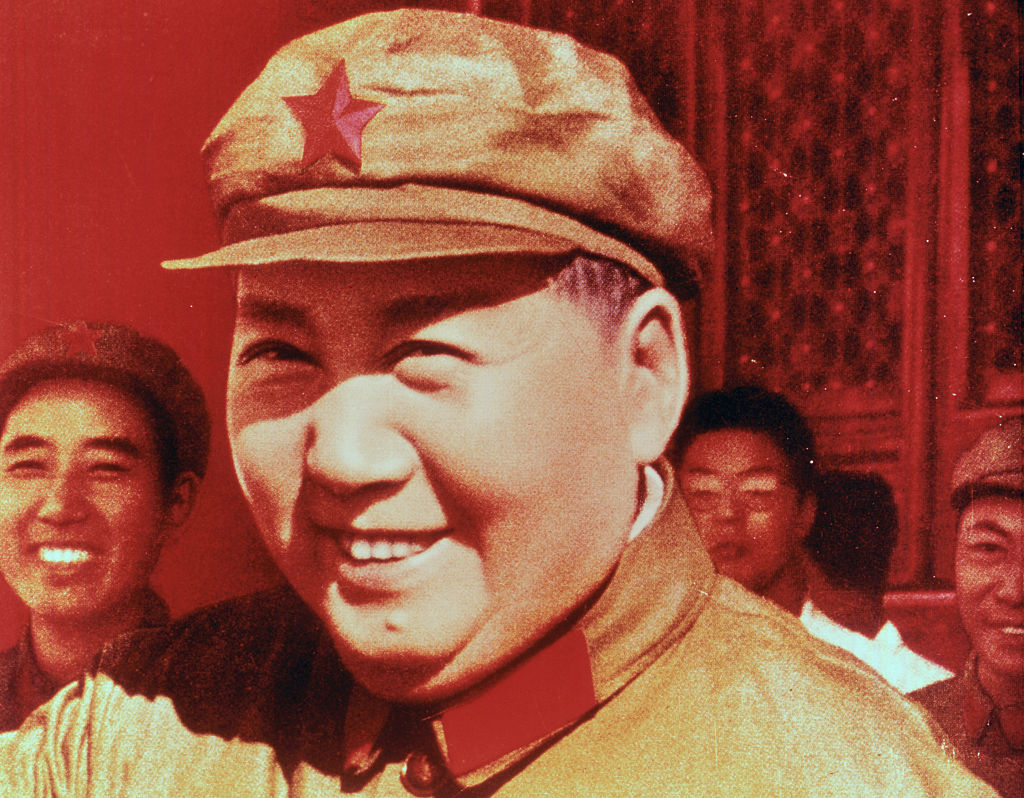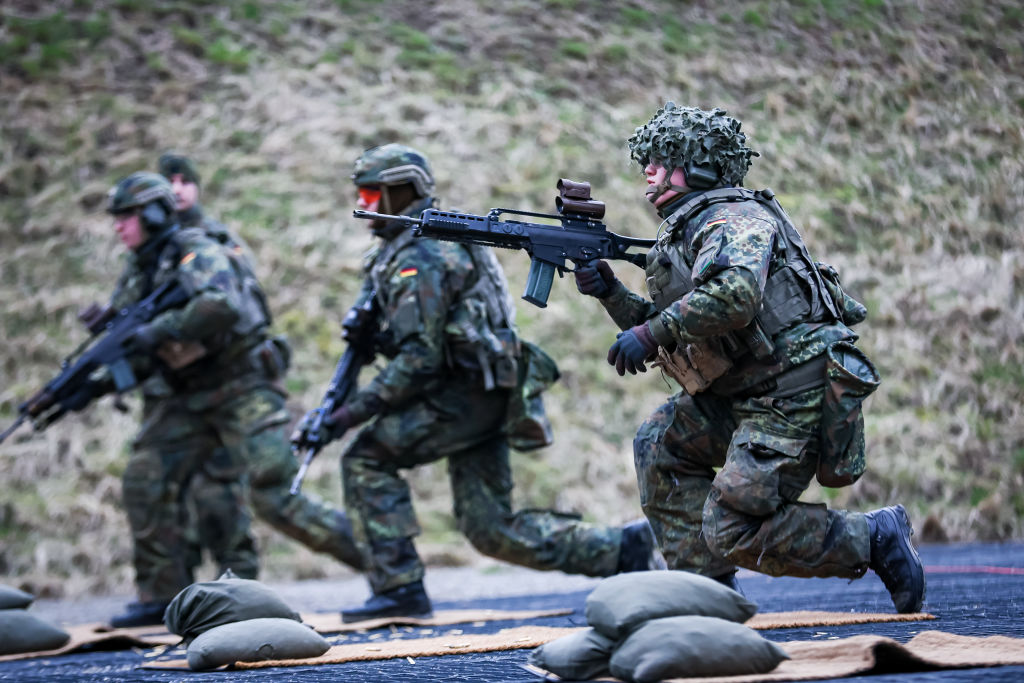Here follows an abstract theory that requires more evidence before it becomes a concrete one: welfare states both by definition and by psychological design are incapable of generating the human will to defend themselves. Wherever the state undertakes to protect all its citizens from the vagaries of life, it simultaneously generates a deadly moral disdain for soldiering and killing. A state that builds welfare structures against poverty and early death ipso facto cannot produce soldiers that will endure the privations of war-fighting and who will unhesitatingly take life in the state’s defence. Yet a willingness to kill should be the defining prerogative of the state, over which it must have a complete monopoly. The process of moral demilitarisation is completed once a state abolishes its right to execute people.
These reflections are not meant to approve or disapprove either of the welfare state or capital punishment. They are merely observations of consequence. They apply, very starkly, to both the EU and Canada, both of which have extolled the virtues of tolerance without equally extolling the virtues of being able violently to protect the institutions that embody that tolerance. To use the muddy language of academia, the feminisation of political discourses has produced effeminised politicians who possess a more kindly and optimistic view of the world. Yes, they empathise. Consider the recent and current western leaders – Trudeau, Carney, Starmer, Biden, Harris, Barroso, Macron, Tusk, Attal et alia; the one thing that they have in common is a soft, touchy-feely educational background. Yes, Carney is an economist, but of the more philosophical bent, which also means that he subscribes to the Lalaland of Net Zero. Scientifically, this is the equivalent of believing in fairies. He is also perhaps the world’s first prime minister who is a citizen three countries – of Canada, Ireland and the UK, an unusual but suitably imprecise statement of where his loyalties really lie: being nice to everyone.
Being generally nice to everyone is certainly a very Canadian characteristic, but not the only one, as attested by the extraordinary bravery and effectiveness of Canadian soldiers. I have fond memories of my time during the war in Bosnia of a newly arrived unit of the Canadian Army issuing a public warning to the Serbian army besieging Sarajevo: open fire on us, hey, and we’ll sure return fire. That first night, a single Serbian sniper opened up on a Canadian outpost: immediately, Canadian artillery blew a dozen pre-identified Serbian positions into low-earth orbit. The next night, the Serbs were as meek as a pair of hippy dormice after a couple of spliffs, man. As a pro-American, I am also deeply aware of Europe’s debt to the USA, but also aware of its debt to Canada. It is often said that Britain stood alone against the Nazis in 1940: not quite. Two Canadian divisions were already deployed in the Home Counties, and more were on the way. Americans rightly proclaim the courage of their soldiers on Omaha Beach in 1944, whereas Canadians remember (but seldom remind you of) the courage and very comparable casualties of their troops during the Dieppe raid in 1942. There are many small differences between the Canadians and Americans, but it is the latter’s infinitely greater mythic skills that are the most telling.
Could the Canadian Army today emulate even its conduct in 1990s Bosnia, never mind its ferocious heroism in France, the Netherlands and Germany 1944-5? Absolutely not: “human rights” considerations would preclude such morally irreproachable but legally doubtful military realism. And what is true for Canada is true tenfold for mainland-Europe’s NATO components, whose office-hours definition of soldiering in Afghanistan was a source of much amused contempt amongst their 24/7 Islamist foes. Of course, the defining standards of contemptibility were set by President Biden, whose spineless capitulation to the Caliban of the Taleban ultimately served to authorise Russia’s attack on Ukraine.
The failure of the US to defend the deal it had negotiated in Afghanistan should have served as a wake-up call to Europe. It did not, with the continent still wallowing in its own moral sewage, incapable of defending itself against either hostile states or illegal immigration. Moreover, the primary sources of legal authority across Europe – and not just the EU – are probably the International Court of Justice at the Hague and the International Court of Human Rights at Strasbourg. In practical effect if not in original intention, both courts are superior to the resolutions of both the parliaments at Westminster and in Brussels, which between them have all the energy and dynamism of a weltering Sargasso of superglued seaweed.
What really binds Europe is the interlinked matrices of parasitic welfarism. That these matrices one day might have to be defended with the blood, brain and bone of the hapless creatures they have been nourishing is a preposterous concept; the liver fluke storms ashore from the landing-craft, the tape worm hurls itself on a silently ticking grenade. Yet Putin’s intentions throughout this century could not have been clearer. To be sure, he is not Hitler – but he has broken at least as many agreements had Hitler had by 1939, and in the process has learnt that he has nothing whatever to fear from welfare-state Europe.
Moreover, Donald Trump’s counter-intuitively insensate arrogance towards Canada has driven that country away from electing the US’s natural ally, Pierre Poilievre. Its grateful recipient is the multinational Carney, who personifies the welfarist, empathising vices of his three component identities, but none of their martial virtues. In essence, he is a classic European, and that is not a compliment. Europe does not pride itself on its cultures, its technological achievements or the democratic civilities that it has given the world, but instead corrupts its citizenry in an orgy of witless welfarism and TV gameshows.
In short, the welfare state has immunised its children against any sense of responsibility towards it. The state is obliged to protect its citizens from all harm, while the citizens have no reciprocal obligation to protect the state, or its many different expressions: its law, its culture, its ethos and its ethnos. The last is vital, though even to admit this is deeply unfashionable. What defines any society is the visible identity of the tribe at its core. The Danish prime minister Matte Frederiksen is (rightly) unapologetic about the very appearance of Danishness, though naturally the report in The Guardian on her government’s proposals to prevent the emergence of permanently alien areas in Denmark reek of the liberal, simpering toxins that has made much of Europe ungovernable.
“Denmark has announced plans to crack down further on disadvantaged neighbourhoods by reducing the number of ‘non-western’ residents, scrapping the controversial term ‘ghetto’ in its proposed legislation.”
That glorious term – Crack down further on disadvantaged neighbourhoods – makes Frederiksen’s project seem like an early stage of the Final Solution rather than what it is: an attempt to prevent Denmark from emulating the racial and cultural catastrophe that is modern Britain. But in one vital sense, Britain is not alone. Far too many western countries are governed by the products of liberal arts colleges that specialise in feel-good courses such as literature, arts, history, philosophy and that odd perversion, “human rights” law: one zone, one clone, many drones. Scientists and engineers – namely human realists – are tragically absent from these political lists.
However, two exceptions are the chemical engineers Margaret Thatcher and the Pole Jerzy Buzek, who were also exceptions in other regards. Thatcher was a pioneering woman from a lower middle-class background, and Buzek was a Lutheran from the bitterly-disputed Český Těšín area, meaning that in slightly different circumstances he might easily have been German or Czech, and he remains the only Polish prime minister who was not a Catholic. But more importantly, Thatcher was probably the last British prime minister who fully grasped both the need for and purpose of a fighting army. Given their uncomfortable address between Prussia and Russia, all Polish prime ministers intuitively understand both, which is why that country is today again preparing for war, while the British army – to slightly paraphrase Churchill on Russia – is a piddle wrapped in a misery inside an enema.
So, yes indeed, the egalitarian welfare-state has done its job exceedingly well. It has unmanned its men and assured its women that they can soldier as well as their fathers and grandfathers once did, though their brothers will not (largely because such unseemly brawling might ruin their hairstyles, and anyway, they need their sleep.)
And that, pretty much, is all that Putin and Xi wish to hear. Over to you, gentlemen….
Kevin Myers is an Irish journalist, author and broadcaster. He has reported on the wars in Northern Ireland, where he worked throughout the 1970s, Beirut and Bosnia.





Men at war, praise them all: strong backs, high skills, comradeship, courage